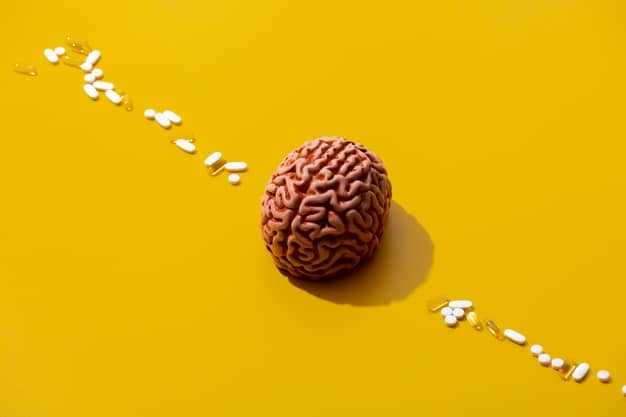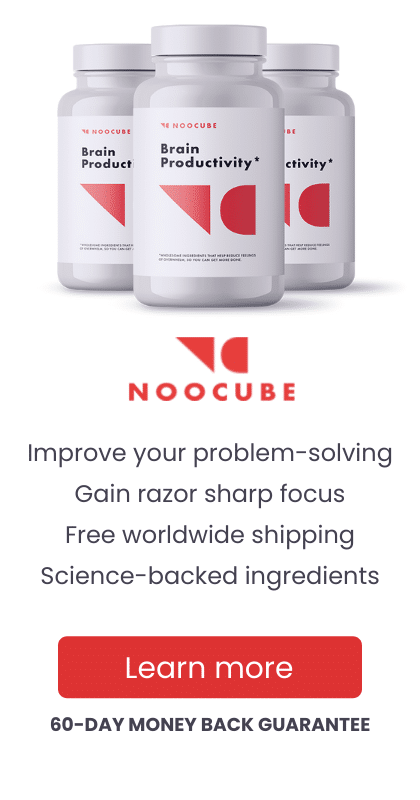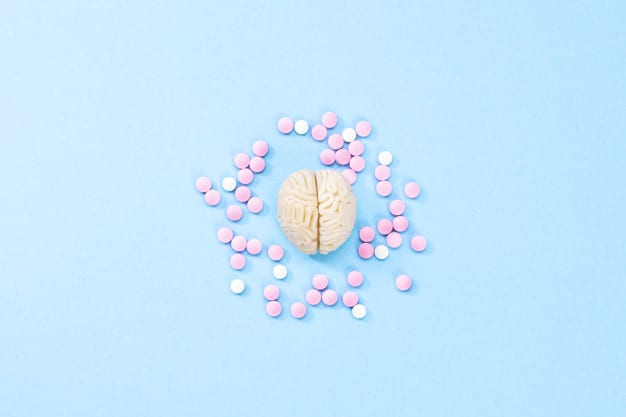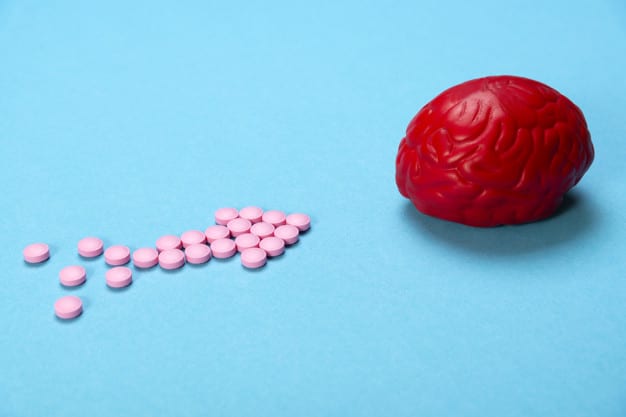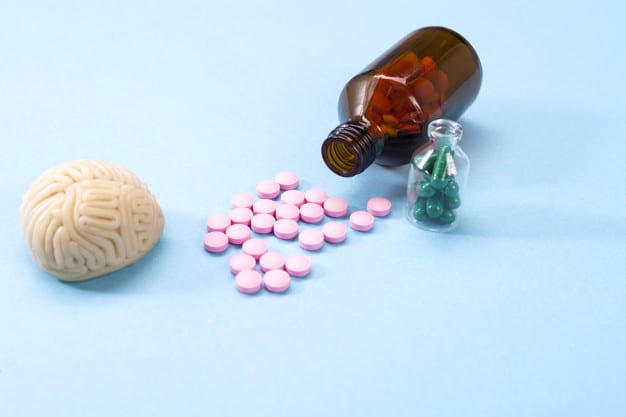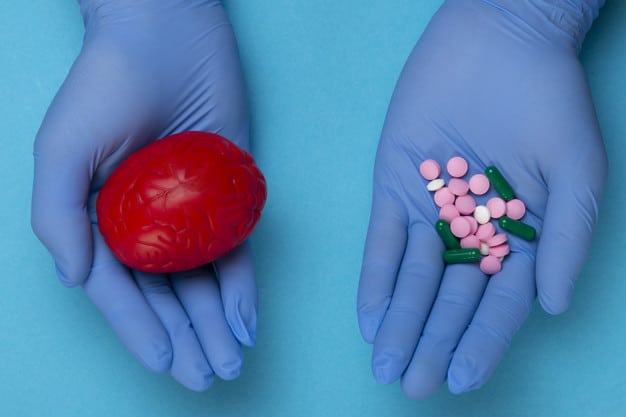Sulbutiamine is a fat-soluble synthetic form of Vitamin B1 or Thiamine. It was developed in the 1960s by Japanese scientists. The compound consists of two Vitamin B1 molecules bound together. When ingested, Sulbutiamine crosses the blood-brain barrier and increases the levels of Thiamine in the brain. In doing so, it’s believed that the drug combats fatigue and weakness. It also improves athletic performance and may support several cognitive functions.
It is also known by the brand names Arcalion and Enerion. It’s used in France to fight fatigue. In the US, Sulbutiamine is sold as a dietary supplement, so you don't need a physician's prescription to buy it. However, the FDA issued some warnings and added the compound to the dietary supplement ingredient advisory list urging manufacturers not to use it.
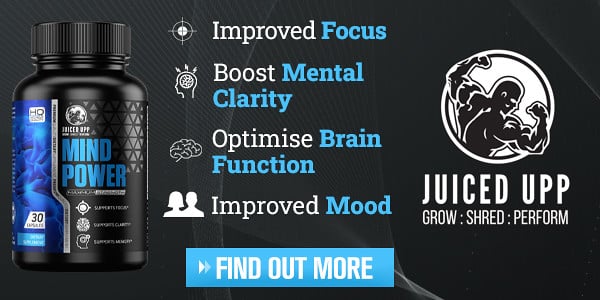
The available scientific evidence on Sulbutiamine is very limited, but it has some very promising data. According to these studies, not only can Sulbutiamine fight fatigue and general weakness, but it can also enhance your cognition and digestion. Some trials even claim it may be effective in treating some of the symptoms of Alzheimer’s disease.
Mechanism of Action
Sulbutiamine is made by binding two thiamine molecules using a sulfur group. This gives the compound a very unique structure with excellent bioavailability. Unlike Theamine itself, which is water-soluble, the nootropic is fat-soluble, and it easily crosses the blood-brain barrier to get into your brain. Here, it boosts thiamine and thiamine triphosphate levels to produce some of the effects the drug is known for.
Trials have also shown that it influences the activities of certain neurotransmitters. For instance, it improves the activities of glutamate and dopamine in the prefrontal cortex. It also enhances the activities of glutamate on dopamine to enhance mental health.
This study also showed it has some antioxidant properties. It increases glutathione, which prevents the death of brain cells. This explains why some researchers claim Sulbutiamine is effective for fighting neurodegenerative disorders.
Uses and Benefits
It is not very well-studied. Nonetheless, preliminary reports show it can be useful for:
- Fighting Fatigue
Several studies have pointed out Sulbutiamine’s effectiveness in fighting different forms of fatigue. In one trial, scientists looked at the impact of the supplement in fighting weakness caused by infectious disease. The subjects were treated with Sulbutiamine and an anti-infective medication. After 15 days, approximately 52% of the patients had experienced improved asthenic symptoms. They concluded that Sulbutiamine could be a good adjunct for some anti-infective treatments. The scientists recommended additional studies.
In another trial, 20 multiple sclerosis patients were given 400mg of it every day for 2 months. The objective was to see the impact of Sulbutiamine on fatigue, a very common side effect of Multiple Sclerosis. At the end of the study period, the energy levels among the patients increased significantly.
It has also been compared to other nootropics or “smart drugs.” In this trial, Piracetam, a popular nootropic belonging to the racetam family, was used in a placebo. The subjects had asthenic disorders induced by mild craniocerebral trauma. The results showed Sulbutiamine was more effective than Piracetam in fighting fatigue and boosting energy.
- Improving Memory and Cognition
Thiamine deficiency is linked to memory dysfunction and some cognitive disorders. Sulbutiamine boosts thiamine levels in the brain to reverse these effects. The drug has been tested on animals and humans, and it produced very promising results. In this trial involving mice, Itwas administered at dosages of 300mg per kg for 10 days. The results showed significant improvements in memory formation. They also observed increased hippocampal cholinergic activity, meaning it can improve choline activities to enhance the functions of the learning neurotransmitter acetylcholine.
The nootropic was also tested in rats with spatial delayed non-match-to-sample (DNMTS) task and object recognition task at dosages of 25mg per kg. While it didn’t affect memory in DNMTS, it did enhance object recognition. It also reduced the amnesic effects of dizocilpine.
In one small human trial, it was used alongside donepezil in 26 patients with early and moderate Alzheimer’s disease. The scientists reported Sulbutiamine to be a potentially useful adjuvant to anticholinesterase drugs in treating patients with early-stage and moderate Alzheimer's disease.
- Enhancing Mood
A few trials show Sulbutmiane can enhance mood and fight anxiety by improving glutamate and dopamine activities in the brain. These are neurotransmitters linked to pleasure, reward, and other functions.
Further clinical research is necessary.
- Treating Erectile Dysfunction
In this human trial, 20 patients with psychogenic erectile dysfunction were given it for 30 days. At the end of the study, erectile function improved significantly in 16 of the 20 patients. Cavernous arterial blood flow also improved in 3 of the 6 patients with arterial issues.
Therefore, it could be an effective treatment for erectile dysfunction, but we still need more clinical trials to look into the drug.
Some of the other possible benefits are:
- It offers antioxidant protection.
- It may reduce indigestion.
- It may help treat diabetic neuropathy.
- May improve mental alertness.
Side Effects
Sulbutiamine is generally well-tolerated by most users. Cases of side effects are rare but still very possible. Some people have reported headaches, skin-related issues, mild agitation, sleep disturbance, and stomach upset.
Most of the side effects are linked to high dosages, so you should be able to avoid them by following the given guideline. In case the side effects persist, stop taking the drug, and seek medical help right away.
Do not use Sulbutiamine without a doctor’s approval if you have an existing medical condition. Pregnant and nursing mothers should avoid using the drug.

Dosage
The ideal Sulbutiamine dosages range from 200 to 600mg per day, split into 2 or 3 servings. Start with the lowest dosage and increase it only if it’s necessary.
Do not take Sulbutiamine for more than 4 weeks.
People using Sulbutiamine as a dietary supplement can combine it with other nootropics for better results. Some people mix it with a choline smart-drug like Alpha GPC. It can also be combined with a Huperzine A and a racetam drug such as Aniracetam.
Due to the lack of extensive clinical trials on nootropics, it’s critical that users mix these drugs very carefully to avoid long-term medical complications. You may also want to consult a physician before combining these research drugs.
References
- https://examine.com/supplements/sulbutiamine/
- https://go.drugbank.com/drugs/DB13416
- https://www.drugs.com/international/sulbutiamine.html

